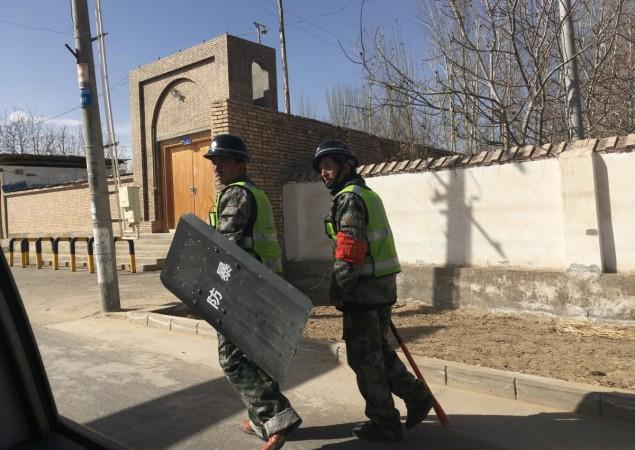
In a surprising move that looks like a bit of damage control, China recently took diplomats from 12 countries, including India, and a few journalists to the nation's controversial training centres in Xinjiang.
The region is home to ethnic Muslims such as the Uyghur and the Kazakhs, who China has often been accused of mistreating. Beijing's move is now being seen as its bid to prove that there has been no crackdown on the Muslims and that the region has, in fact, witnessed significant economic and social development.
The visit was reportedly arranged between December 28 and 30 and representatives from Russia, Kazakhstan, Kyrgyzstan, Uzbekistan, Tajikistan, India, Pakistan, Indonesia, Malaysia, Afghanistan, Thailand, and Kuwait were part of the delegation.
China's official news agency Xinhua said in a report that the members of the delegation visited mosques, factories, farmers, local markets and educational institutions, as well as, the training centres that have often been labelled as China's concentration camps. They were also taken to Id Kah Mosque in Kashgar, the largest mosque in Xinjiang, where they were shown around and told about the facilities available there.
"Throughout the trip, they interacted with local vendors, students, and workers in Xinjiang and learned about the region's progress in maintaining social stability, improving people's livelihood and developing the local economy," the Xinhua report added.
The representatives were then taken to the Moyu County Vocational Skills Education and Training Centre, where they reportedly interacted with students there and got to know of their daily routine. "The envoys asked the students about their study and life in detail, and watched the performances of the students," the report said, adding that students ar age centre learnt languages, musical instruments, painting and calligraphy among other things.
The centres have often been called China's reeducation camps and former detainees have also spoken of how almost 2 million people are held here and forced to renounce their religions and families. Speaking of the "relentless indoctrination" at these camps, the detainees said that the conditions at these centres seemed worst than a prison.

The detainees are often asked to learn the Communist propaganda and hail and pray for leader Xi Jinping's long life. "Those who disobeyed the rules, refused to be on duty, engaged in fights or were late for studies were placed in handcuffs and ankle cuffs for up to 12 hours," one of the former detainees earlier told the Washington Post.
He also revealed that punishments included waterboarding and being strapped for long hours in a metal contraption.
However, China recently opened up on these camps and had said that these were "legal" and "humane job-training centres." Shohrat Zakir, the chairman of Xinjiang's government and an ethnic Uighur himself, said that these camps are for the benefit of the minority group and here they are trained on several skills, which may help them in the future.
Zakir also claimed that people living in these centres were not detainees, but "students" who enjoyed facilities such as air-conditioned dormitories equipped with TV and radio, good and free meals, and access to computers and even movie screenings.
"Indoor and outdoor sports venues for basketball, volleyball and table tennis have been built, along with reading rooms, computer labs, film screening rooms, as well as performance venues such as small auditoriums and open-air stages," he added.

















